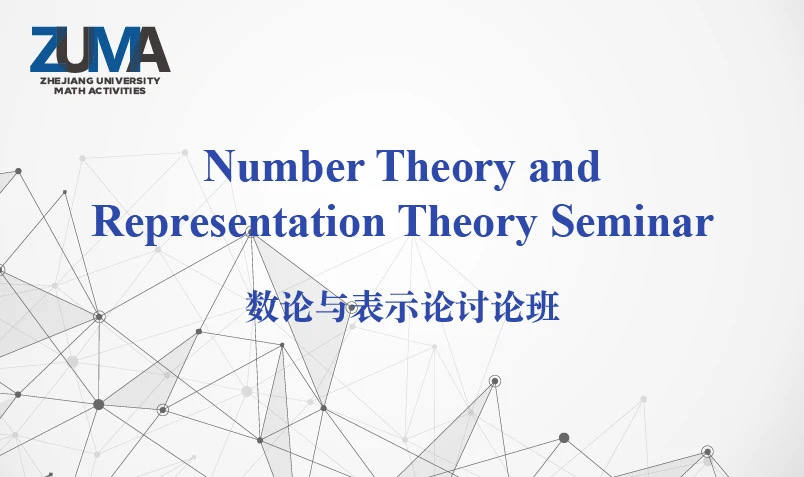
The seminar will meet at 4:00–5:00 pm, Wednesday (almost) every week during semesters, in the lecture room of IASM (East 7 Bldg, Zijingang Campus), unless otherwise noted. The seminar is organized by the NT&RT Group at Zhejiang University.
Here are the past talks.
Click on a title to reveal its abstract.
Schedule (2025–26 Spring)
Mar 4
- Speaker: Yinchong Song 宋寅翀 (Peking University 北京大学)
- Title: TBA
Mar 11
- Speaker: Ziqi Guo 郭子棋 (Peking University 北京大学)
- Title: TBA
Mar 18
- Speaker: TBA (TBA)
- Title: TBA
Mar 25
- Speaker: Yuta Takaya 髙谷悠太 (University of Tyoko 東京大学)
- Title: TBA
Apr 1
- Speaker: Wenxuan Qi 齐文轩 (Peking University 北京大学)
- Title: TBA
Apr 8
- Speaker: Haocheng Fan 范浩程 (Peking University 北京大学)
- Title: TBA
Apr 15
- Speaker: TBA (TBA)
- Title: TBA
Apr 22
- Speaker: Ian Gleason (National University of Singapore 新加坡国立大学)
- Title: TBA
Apr 29
- Speaker: Klaus Künnemann (Universität Regensburg)
- Title: TBA
May 6
- Speaker: David Hansen (National University of Singapore 新加坡国立大学)
- Title: TBA
May 20
- Speaker: Wei He 何伟 (Xi'an Jiaotong University 西安交通大学)
- Title: TBA
May 27
- Speaker: Mattia Cavicchi (Université Bourgogne Europe)
- Title: TBA
Jun 3
- Speaker: Zhiyou Wu 吴峙佑 (Chinese Academy of Sciences 中国科学院)
- Title: TBA
Jun 11 (Thursday!)
- Speaker: Grigory Andreychev (Chinese Academy of Sciences 中国科学院)
- Title: TBA
Jun 17
- Speaker: Elad Zehlinger (University of Michigan)
- Title: TBA
Jun 24
- Speaker: Weixiao Lu 卢维潇 (Aix Marseille Université)
- Title: TBA